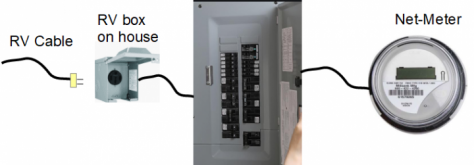BigReginaRick
New Member
- Joined
- Feb 6, 2021
- Messages
- 1
I am wanting to upgrade my pop up trailer solar system to 400W. I have a pretty good understanding how to do that. However, since it will be parked on the south side of my house while not camping I am interested in connecting to my grid power with most likely an Enphase micro inverter. Undecided if I would have dedicated solar panels at my house as electricity is cheap here in British Columbia (.116/kWh) and all from hydro. But I figure since I will have solar on the RV for off grid camping might as well try to utilize them while it is parked at home. Anyone have experience with this type of thing?
flipside would be suggestions on how to use rv solar system power while at home to power certain household electronic.
flipside would be suggestions on how to use rv solar system power while at home to power certain household electronic.



